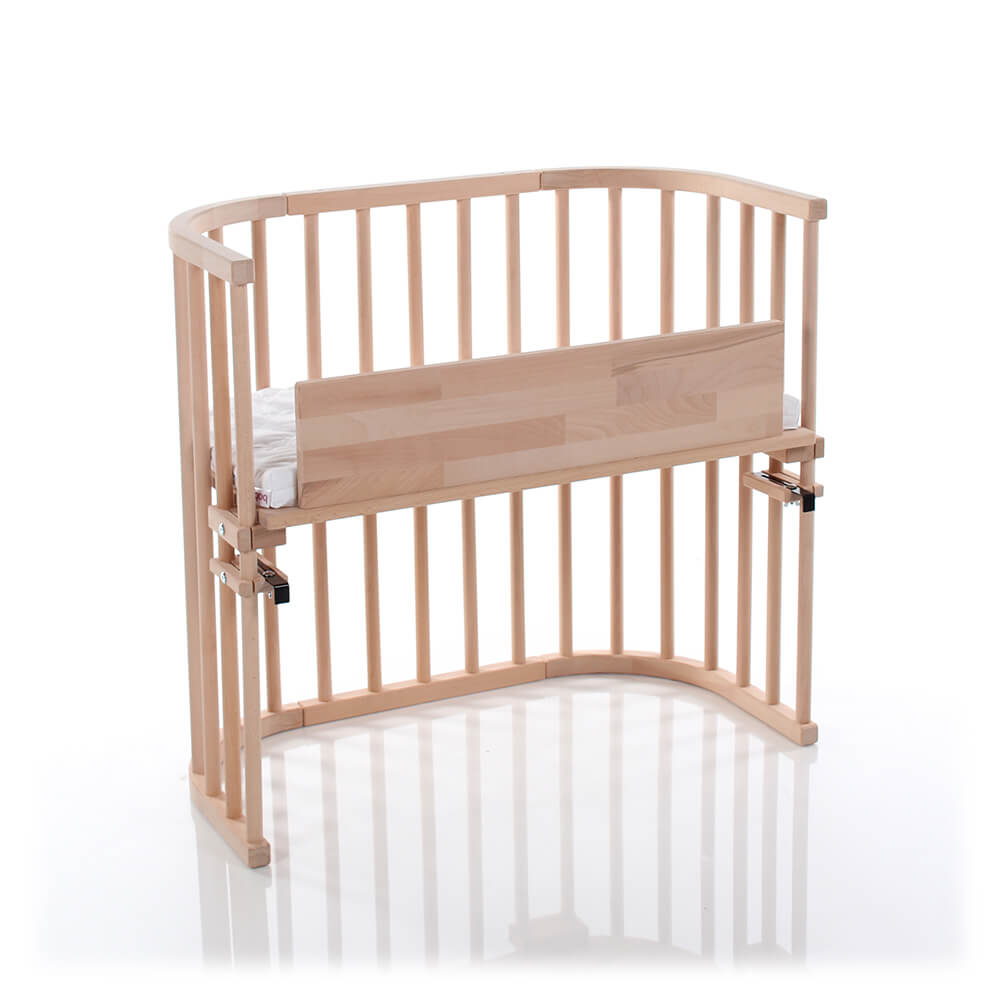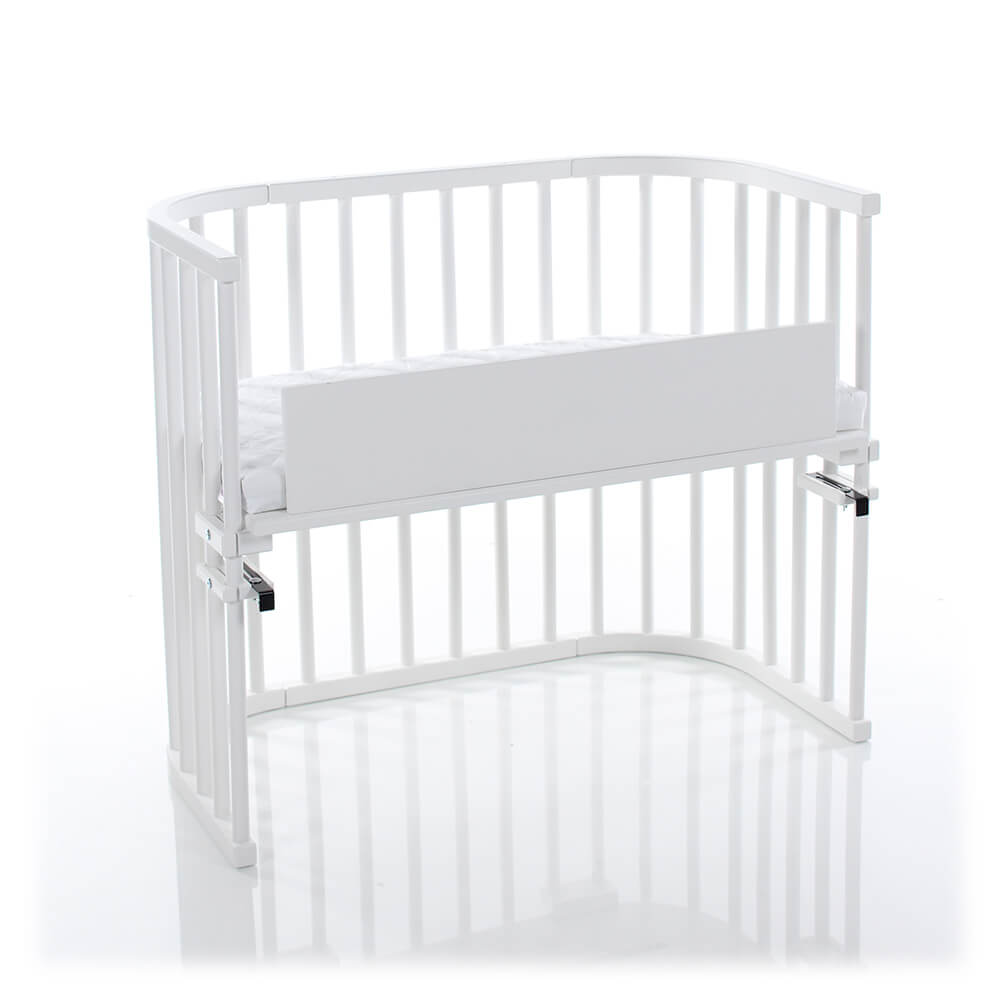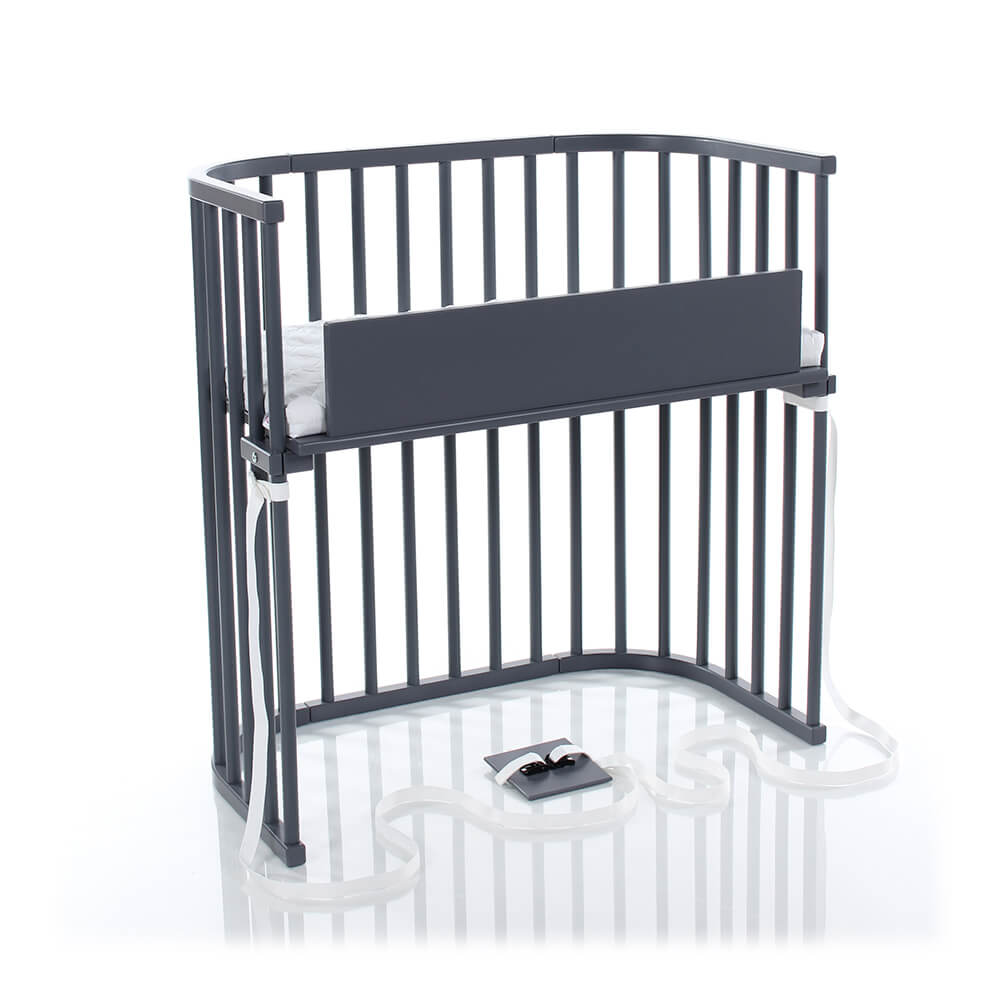You don’t need statistics to back up the fact that getting a full night’s sleep with a new baby can be hard (heck, you just need to look in the mirror to see the black rings under your eyes and that spell “I need some coffee or wake-me-up tea…stat!”) But if you’re feeling like one of the many sleep deprived parents out there who need some relief, just know that you’re not alone.
Adults tend to need 7-9 hours of quality sleep per night. But with frequent feedings and cries for comforting as the new normal, getting that much shut-eye can feel near-impossible to do. In fact, scientists have discovered that new dads tend to lose an average of 13 minutes of sleep a night, while new moms lose over an hour of sleep on average.
And while chugging caffeine might seem like a solid short-term solution at first, the truth is that it might take years (or, at least, up until your child is around 6 years old) before your sleep schedule returns to its pre-kid patterns.
But that shouldn’t be cause for concern. Because while studies are pretty clear on the fact that long-term sleep deprivation comes with some pretty not-fun negatives (like increased anxiety, irritability, reduced cognitive functioning, and postpartum depression onset), there are ways to take back control of your sleep — while still making sure your little one is getting high-quality shut-eye of their own. 
In this complete guide for sleep deprived parents (who are finally ready to wake up feeling rested and ready to take on the day), you’ll discover:
- Why following your baby’s lead is the key to getting dream-filled nights that leave you refreshed in the morning
- The key ways you can rely on your support network to ease the pressures of nighttime stress and sleeplessness
- Why sleep hygiene might be the most-important (and rest-giving) part of your nighttime prep routine
- How postpartum doulas and after-care specialists make nighttime sleep magic happen (just by supporting you in the right, should have thought of that! ways)
- The sleep setup that has been scientifically proven to help you sleep longer and spend more time in REM — while your baby gets peaceful and bonding-filled rest right beside you
How to Deal with Sleep Deprivation with a Baby: Follow Their Lead
When your baby sleeps, that’s your cue to sleep too. Simple enough, right? But hold up — it doesn’t always feel that easy.
It’s tempting to spend the first year fighting against their baby’s natural rhythm and needs, or ignoring clear baby sleep cues when they start showing. Because when there is a schedule to keep or visiting grandparents to pay attention to, it can be easy to ignore the yawning and eye-rubbing or assure your baby “just a few more minutes!” while keeping them wide-awake and surrounded by love and attention.
And while being surrounded with loving people sounds like a good thing (and it is most of the time!), ignoring those baby sleep cues when they come on sets you and your baby on the fast-track to tumultuous sleep.
You can try to get your baby on your clock, but this will only add to your exhaustion. The time will come when your baby can wait a bit before being put to sleep (without any over-exhaustion symptoms coming on), but don’t expect it right away.
Instead, follow the #1 trick for how to deal with sleep deprivation with a baby: let your baby take the lead, and commit to getting rest-time in when you can.
When Possible, Share Responsibilities with Your Partner or Loved Ones
Listen to your body when it says you need to rest. And no matter how independent you are, talk to your partner or other nearby friends/family/neighbors/people close to you about how they can help you during those rest-needing moments.
Working with your support network to rotate responsibilities will make it possible for you to sleep, heal, and be at your best. (Remember, child birth takes a lot out of your body, and if you had a cesarean section you might be having an even harder time finding ways to get comfortable and get quality sleep after c-section.)
The American Academy of Family Physicians echoes the importance of letting others help during your postpartum recovery:
“During the first six weeks, pay attention to your body…resist the temptation to do more. Overdoing things at this point can set you back in your recovery. Concentrate on nourishing your body with good foods, drinking plenty of water (especially if you are breastfeeding), and getting enough rest.”
Your baby, body, and relationship will all benefit from practicing good communication. So think of asking for help as the natural thing to do after child birth — and get the support you need to finally sleep.
Practice Proper Sleep Hygiene as a Sleep Deprived Parent (Yep, That’s Really a Thing)
The concept of proper sleep hygiene is all about setting up your sleep environment and making choices during the day to not interfere with your body’s ability to sleep. And unsurprisingly, the same tips that help you get more shut-eye during other times of your life offer much-needed advice that take some of the difficulty out of how to deal with sleep deprivation as a parent.
For example: not drinking caffeine after 2pm, fighting late-night cravings, and removing technology from the bedroom can all set your mind at ease and leave you geared up (or geared down) to cozy into bed and fall into dreamland as soon as your head hits the pillow.
With a newborn added to the nighttime equation, it’s hard for your body to make sense of the nightly schedule you’re keeping up. With feedings waking you up every few hours, sending mixed messages to your body in the form of late-night caffeine or social media scrolls can make it hard to go back to sleep on command.
But if it’s nighttime and “struggling to sleep” feels firmly where you are (while popping things like “How to deal with sleep deprivation as a parent” into Google’s search bar), here are some quick tips that will help you calm your racing mind and make drifting into nighttime slumber easier:
-
-
- Doing 5-10 minutes of yoga or peaceful meditation
- Sipping a cup of herbal tea (herbal teams like chamomile and peppermint are naturally decaffeinated)
- Closing the blinds, or using blackout window treatments to help cut through your body’s circadian rhythm and let your system know it’s time for rest
-

Services to Help with Slumber: Postpartum Doulas and After-Birth Care Specialists
Postpartum Doulas and After-Birth Care Specialists are specially trained to help moms in the first weeks or months after giving birth. They work with you — often in your home — to help you feel comfortable adapting to all things parenthood. (They’re also covered by state health care and independent insurance coverages in many cases.)
If your lack of recent sleep is partly a result of all the recent changes in your life or concern about whether you’re “doing things right,” postpartum doulas or after-birth care specialists can help set your mind at ease by giving well-researched answers to all of your most keep me up at night questions about parenthood.
Struggling with getting baby to latch on? Worried you’ve swaddled your baby too tightly? Experiencing anxiety about how your body is healing? Don’t know why your baby won’t stop crying?
With compassion, understanding, and a helpful attitude, professionals like these will help with all of it. And bonus: they’ll also listen to the specifics of your situations and give some relevant-to-you tips and tricks for easing the exhaustion pressures of the nighttime hours.
Although this uncharted territory of parenthood can be frightening, don’t forget about the resources available to help you. If you’ve got a question, ask it. If you’re unsure of something or something feels off, trust your gut and find help. There’s nothing like peace of mind when it comes to a good night’s sleep.
Try Out a Bedside Co-Sleeper (Your Sleep Cycles Will Thank You)
This might just be the quickest and easiest to new parent sleep deprivation on this list: switching to using a bedside co-sleeper can make all the difference in terms of a good night’s sleep by taking all the “getting up to breastfeed or care for your little one” sleep disrupting out of your nightly regimen. 
Co-sleeping has long been the generations-loved and around-the-world-respected sleep solution for helping both parents and baby sleep better — and longer — at night. When done safely (like with the help of a safety-certified bedside co-sleeper), co-sleeping promotes physiological syncing between parent and baby (which sets breathing, heartbeat, etc. into a balanced and calming pattern that affects the peacefulness of both), and leads to increased time in REM sleep and rest in longer intervals.
If you think about it, the proven benefits of staying extra-close to your little one at night make sense.
Your baby has spent upwards of 9 months in the womb, getting used to the feeling of having their mother’s heartbeat nearby and the natural body rhythm of a loved one surrounding them. Safe co-sleeping replicates this closeness, making the transition from womb to the real world less jarring (which leads to easier ease during the moments when drifting into dreamland is on the agenda).
Want to try the bedside co-sleeper thing out?
Consider the leading attachable bedside co-sleeper by babybay. Not only is babybay the only eco-friendly sleeper on the market, but they’re also committed to sustainable manufacturing and are created by parents, for parents — showing a true understanding of your everyday struggles and needs. That puts them on the front line of your mission to end end your status as sleep deprived parents, while making every night of sleep one that is filled with plenty of peaceful dreams and beautiful bonding.







